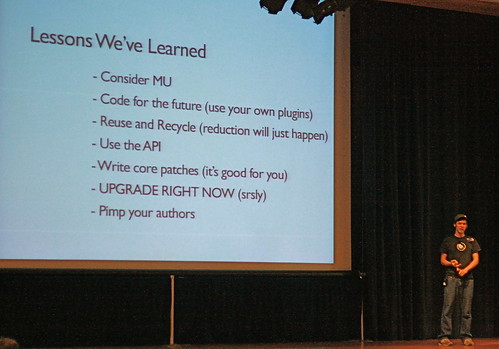I hadn’t heard of Global Voices Online, a community generated global group news blog, until Jeremy Clarke spoke of it at WordCamp. And I didn’t think the site, with it’s do-good premise, worked until I actually explored it for a while. But, well, it’s a bit fascinating.
Global Voices grew out of a one-day conference in December 2004 at Harvard Law School which brought together bloggers from around the world to discuss ways in which the new medium could foment global dialogue at the grassroots level.
The notion is that volunteers and paid editors are scouring the blogosphere to find native voices around the world. And then these volunteers and editors summarize the news content among those bloggers and post the stories to Global Voices — in English. The aggregation is human driven because, they say, it leads to better results and the local knowledge of the the human aggregators allows them to spot news among new sources more quickly. The example case is personal-oriented bloggers who become front-line news reporters when news-worthy events strike home.
They’ve got funding from the Harvard Berkman Center, MacArthur Foundation, John S. and James L. Knight Foundation, and Reuters, and all their content is posted under a Creative Commons Attribution license. All this blogging stuff is interesting to the WordPress community here at WordCamp, but the fact that they’re also running it on WordPress allows Clarke to offer some specific tips: “use author profile pages to promote your authors,” “reuse, reuse, reuse code, reduction happens naturally,” and others. It turned out to be a better session than I expected.
